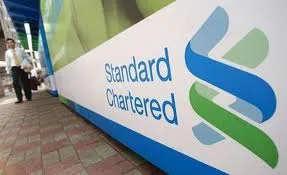
StanChart sees big opportunities in Chinese, Indian markets
Standard Chartered is encouraged by the policy outlook for India and China this year.
The U.K.-based lender, which focuses almost exclusively on Asia and emerging economies, also sees European rivals retreating from those markets due to challenges at home, says CEO Jaspal Bindra.
As European banks regroup and retreat from Asia, Standard Chartered sees an opening. The trend is especially pronounced in industries including shipping and commodities and in markets like Indonesia and India where dollar liquidity is scarce, he said.
“It gives us an opportunity to scale up market share, and second, it gives us a little bit of pricing advantage.”
Standard Chartered faced a range of challenges including slowing growth, rising interest rates and a depreciating rupee. Revenue from the bank’s India unit fell by 12% in the first half of 2011 and by the “mid-teens” in the third quarter, Group Finance Director Richard Meddings said earlier.
Mr. Bindra blamed higher interest rates. “Interest rates went up almost 400 basis points in a short period, and it is very difficult, if you do wholesale business with the best clients in the country, to pass on a 400 basis point increase at any one time.”
But the central bank’s surprise move to loosen monetary policy this week has sent a “clear signal” that there will be no further rate hikes and the government is shifting its focus to promoting growth, Mr. Bindra said.
“The government has for a long time shown a huge preference to manage inflation through monetary policy,” he said. But following the RBI cut, “I think we will see a more balanced approach.”
Mr. Bindra also said that the recent “normalization” of the rupee exchange rate — it is up 6% against the dollar so far this year after declining 15.1% in 2011 — will encourage renewed foreign investment.
In China, Mr. Bindra believes authorities will be successful in guiding the economy to a “soft landing” ahead of a leadership transition at the end of the year.
“The priority for all of 2012 and beyond is going to be ‘how do we keep things stable,’ as they have this transition of power at the top,” he said, adding that not just the top political leadership, but also the leaders of major financial institutions and regulators are all due to be reshuffled. “It is quite a massive-scale change of power.”
For the source of this story, click here.




![Lorem Ipsum [ABF 1]](https://cmg-qa.s3.ap-southeast-1.amazonaws.com/s3fs-public/styles/exclusive_featured_article/public/2025-03/a_hand_pointing_to_a_futuristic_technology_5b87c9d0e3_1.png.webp?itok=2w0y1WhS)


![Cross Domain [Manu + SBR + ABF + ABR + FMCG + HBR + ]](https://cmg-qa.s3.ap-southeast-1.amazonaws.com/s3fs-public/styles/exclusive_featured_article/public/2025-01/earth-3537401_1920_4.jpg.webp?itok=WaRpTJwE)







 Advertise
Advertise

